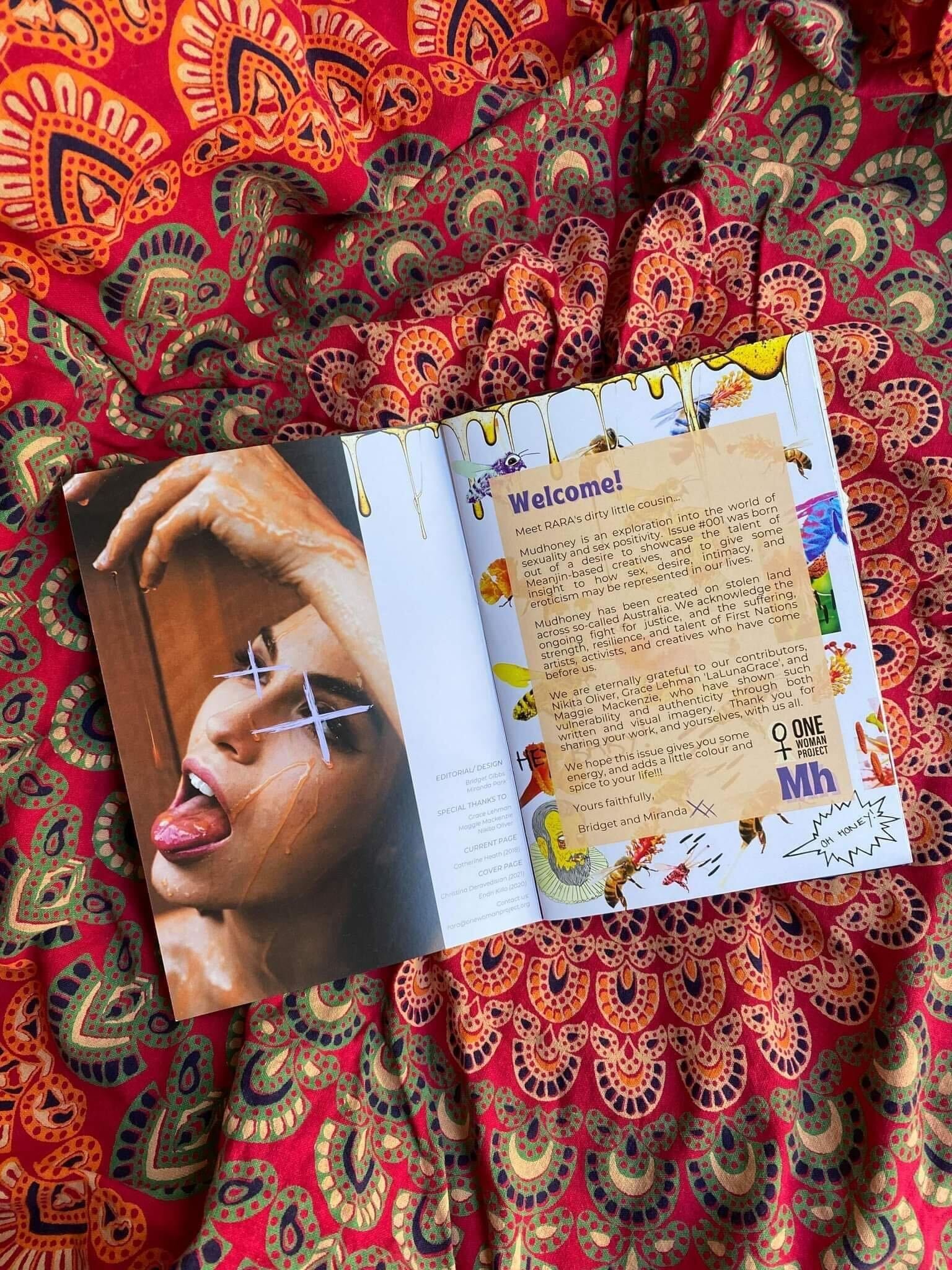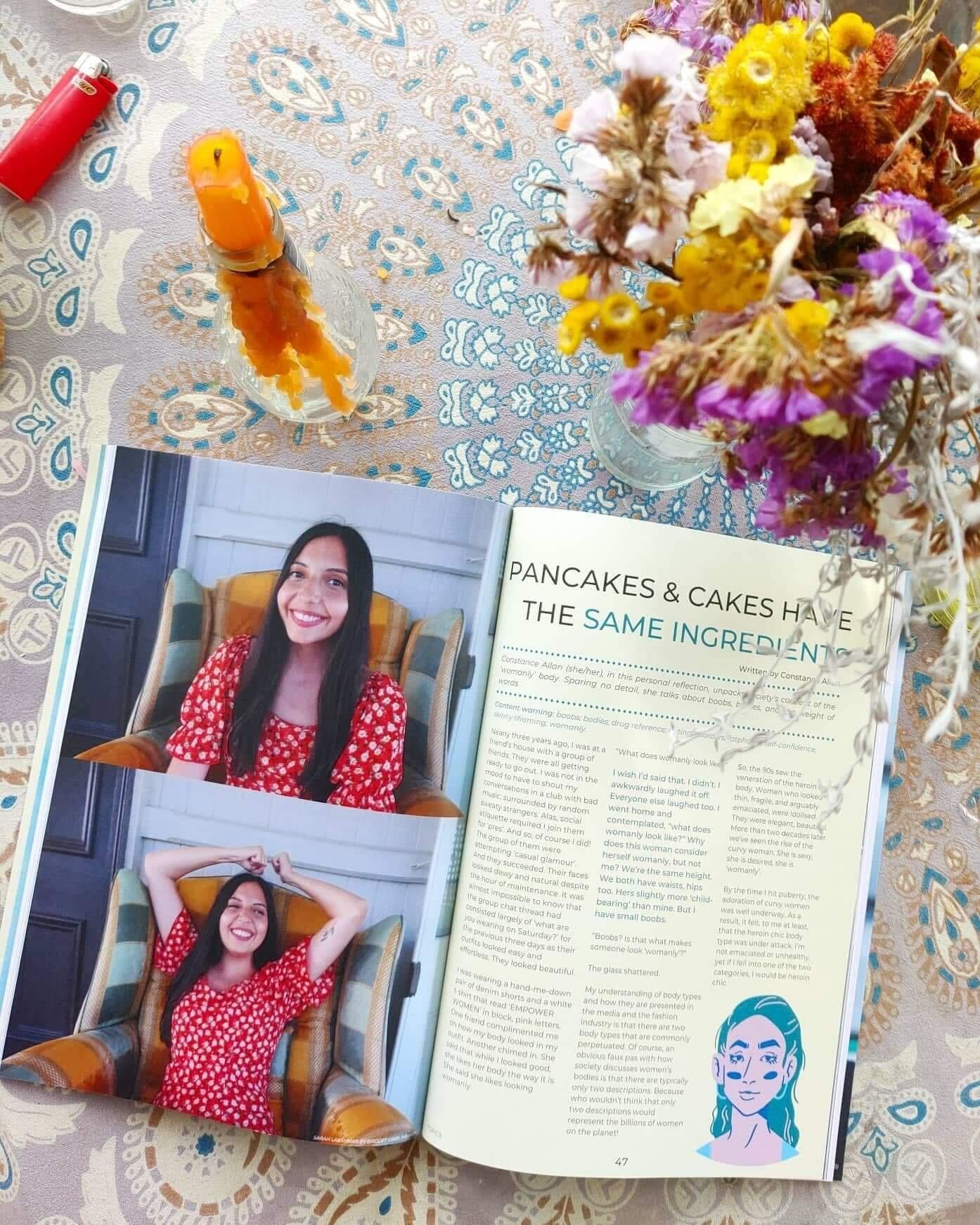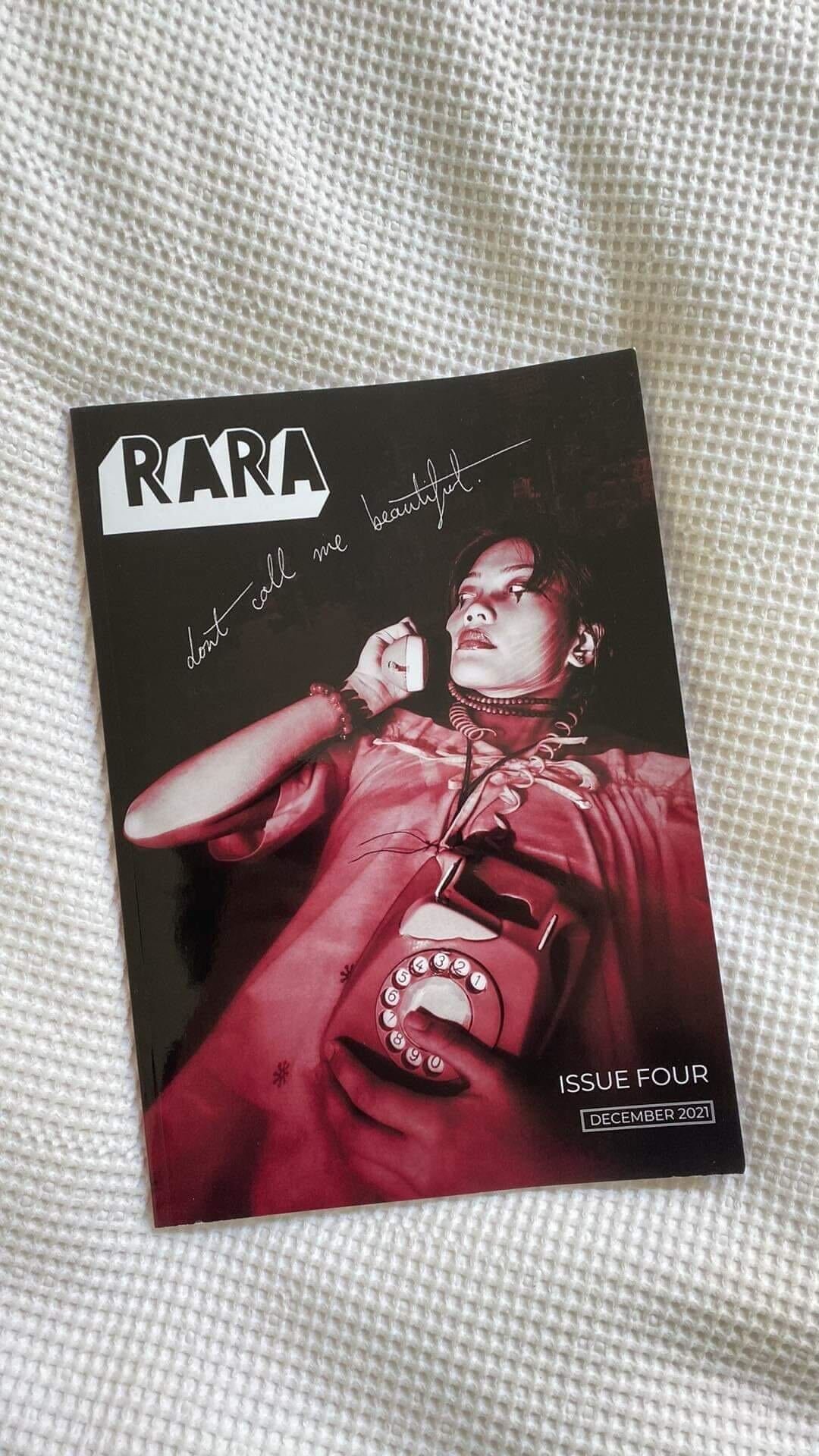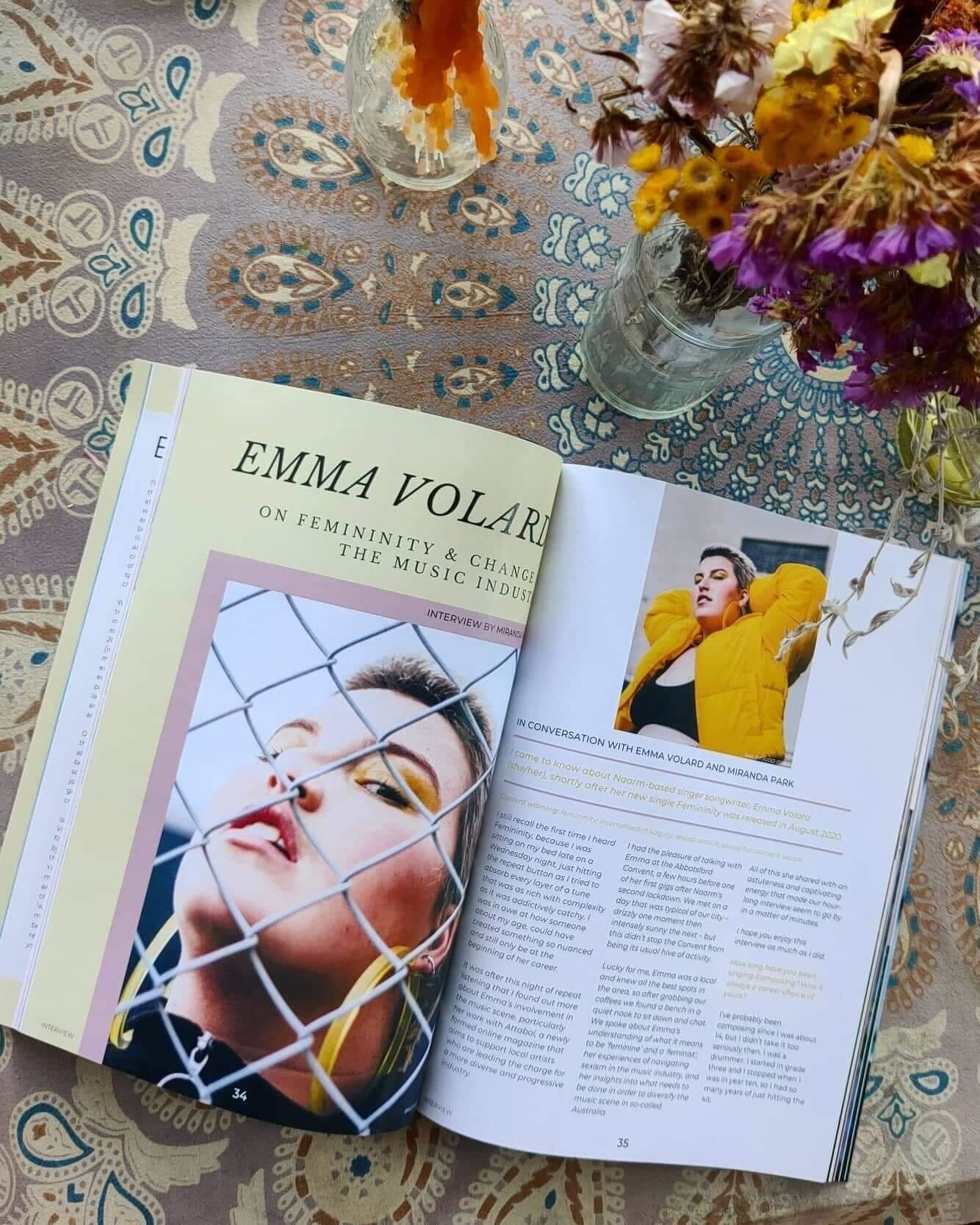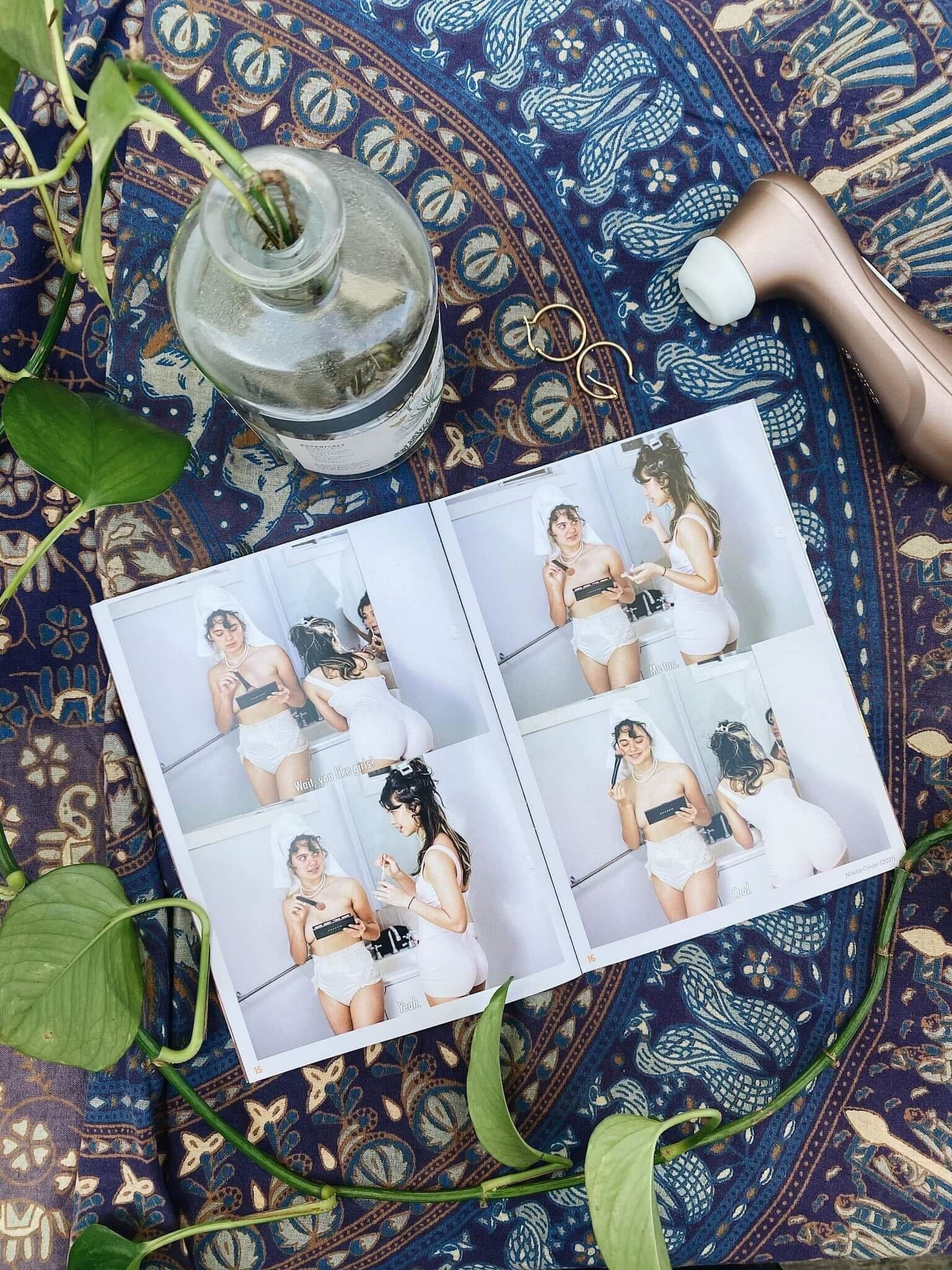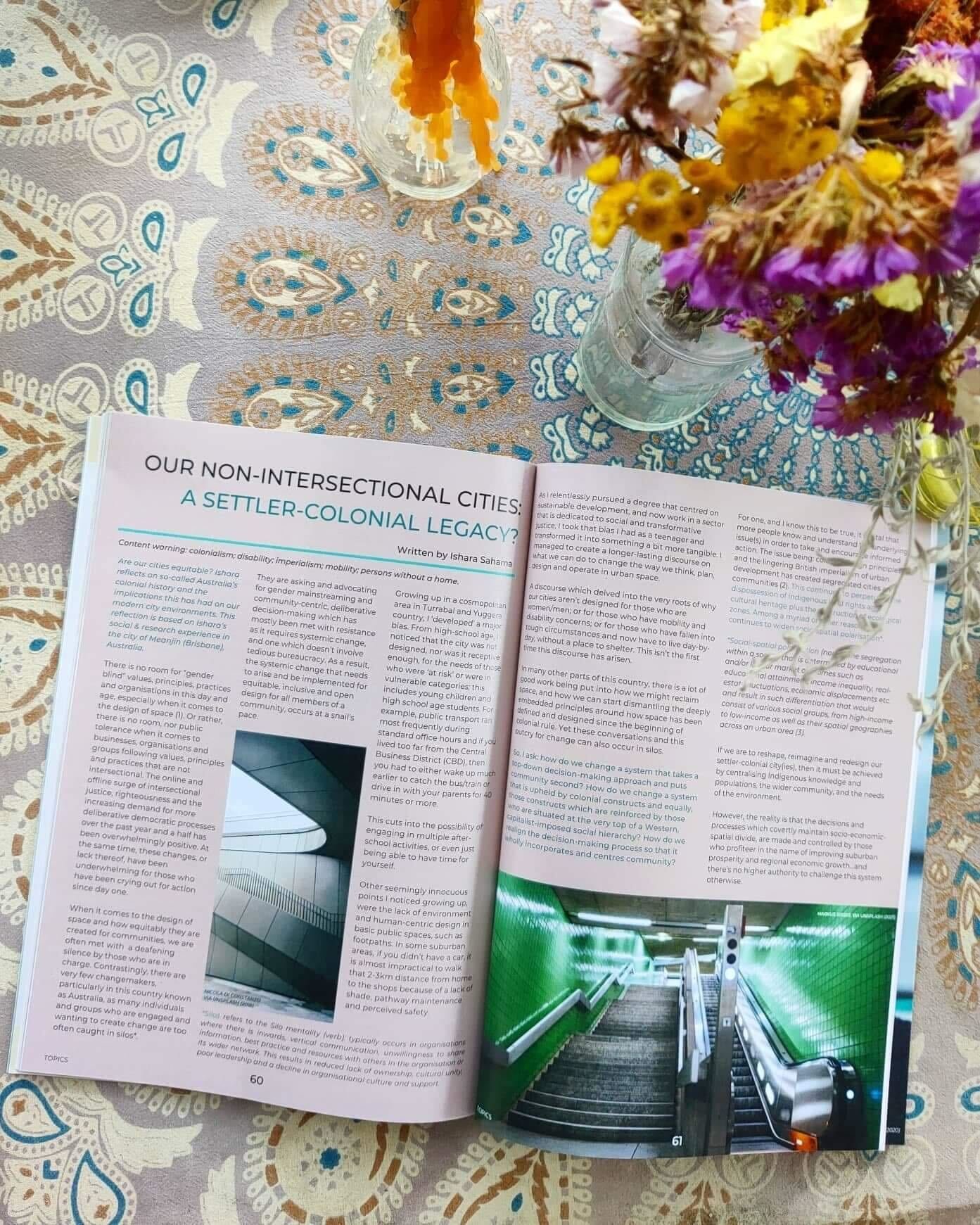Let’s Talk About the ‘F’ Word
Thanks so much for chatting with us, Maggie! What is One Woman Project?
One Woman Project (OWP) is an Australian youth-led, non-for-profit, intersectional feminist organisation, committed to fighting gender and social injustice through education. Our goal is to help youth tackle the gender injustices they witness every day and enact change in their local and international communities.
How did you become involved?
I stumbled across OWP in March 2021, and fell in love with their values and goals. I’d always been incredibly passionate about feminism, especially when it came to representations within books and media, and was wanting to be involved in an organisation that was making such important contributions to this fight.
I also saw that they had writing opportunities! As a writer, one of the biggest things I endeavour to do is to write about topics that inspire change or contribute to society in a productive way. But ultimately, I wanted to grow my learning and be in a community of like-minded and badass feminists. So, I applied online and got involved. I’ve learned so much about feminism that I didn’t know before and it’s been a very educating and privilege-checking experience.
I initially started off applying as an Online Engagement Assistant, which meant I was responsible for creating content for the OWP blog. But within a space of a week, the Blog Coordinator position popped up and I leapt for it. I have been working as their Blog Coordinator until recently when I took up the National Co-Director of Online Engagement position with my fellow kickass partner Bridget Gibbs. We are responsible for overseeing all online material, and acting as a support system for other members within our portfolio. It’s been challenging, rewarding, and honestly one of the best experiences!
One Woman Project has a plethora of projects! Tell us a little bit about the different workshops and publications facilitated by One Woman Project.
Oh my goodness, where to start? We have a number of different projects run by our fantastic team here at OWP. We have in-school workshops run by our Education & Curriculum team, who do a lot of work with UQ Respect, educating students and youth on gender representation, diversity, healthy relationships, and generally how the patriarchy and gender inequality function in the world that we live in.
Then there are our online campaigns and workshops headed by our Engagement & Outreach portfolio. We are currently in the middle of our #FliptheScript campaign, which is talking about the current climate crisis and its many facets. One of my favourite campaigns E&O have run was our Change the Channel campaign last year. This looked at representation and diversity within young adult media, and whether or not TV shows, movies, and books are representing healthy relationships, and how we can give youth the tools they need to critically consume content.
And of course, our publications team. We have two other publications aside from the blog, RARA and Mudhoney, which are coordinated by our wonderful editors Bridget and Miranda. RARA is a biannual magazine that dares to be different in a world of publications that are designed to oppress readers into aligning with stereotypes and stigmas. Our goal is that RARA will empower through education. Mudhoney is its sexy little cousin, it is shorter, sweeter, and only appears once a year.
Historically, there’s been a stigma surrounding the word ‘feminism’ or ‘feminist’, and so, by extension, identifying as a feminist can come with certain social connotations. Can you speak to your own experience identifying as a feminist and what do you recommend to people struggling with this label?
Mudhoney Zine, photo supplied by One Woman Project
I wrote an article about this a little while ago (cheeky plug), which was published in Mudhoney. I talked about how when I was a teenager I often thought of myself as someone who ‘believed in equal rights' but wouldn’t identify as a feminist, which seems laughable now, but at the time was naturally speared on because of the stigma associated with the word. It was incredibly common for the phrase ‘feminazi’ to be thrown around ( …we love fascism and feminism being equated…). When I left high school, I realised all of that were conditions of the patriarchy and examples of how women try to work themselves into circles dominated by men to avoid exclusion. A lot of this comes to the detriment of other women and non-binary people, and I realised I had been feeding into a lot of internalised misogyny.
My biggest feminist learning curve came after I ended a long-term relationship with a man and started questioning my sexuality. I started realising all the aspects of feminism I’d been neglecting and was intent on learning more. I took a deep dive into intersectional feminism and revaluated my privilege as a white, cis, straight passing woman.
Can you explain intersectionality?
Intersectionality is essentially the acknowledgement of how our identities intersect, and how these identities are treated as either advantages or disadvantages within different societies and groups. These identities include gender, sexuality, race, religion, ability, and class. Intersectional feminism is a key part in learning how to understand your privilege. For instance, while I may experience the sexism and discrimination that comes with being a queer woman, I still have the privilege of being white, cis, and able-bodied. It is the acknowledgement that I will not have the same lived experience as that of a Black or trans woman, and that to align my own experience with theirs is to misunderstand and misrepresent the other structural and societal barriers that act against them.
And so, I think, to answer your question, this would be my biggest piece of advice to anyone struggling with the label of ‘feminist’ or even just where to start in feminism.
““Sit down, look at what you see, read, and digest in the world, and notice what your first response is.” ”
And then ask, where is that thought coming from, and why do I think this way? It’s scary and uncomfortable, but sitting in the discomfort is so important. How can we expect to make change, if we aren’t willing to look at what we’ve internalised ourselves?
Over several decades, we’ve seen feminism and the pursuit of gender equality ebb and flow. What would you say to people out there who may think we’ve achieved gender equality? In an Australian context, where are we on this journey and how long do we still have to go?
I would say we definitely haven’t achieved gender equality by any means. I think when people who aren’t in the feminist sphere think about feminism, their minds go to first and second-wave feminism, and think the work we’ve accomplished from those movements is enough: that women have gotten the vote, are no longer forced to stay at home and are able to work ... that gender equality is done and dusted. This is simply not the case, as it is a lot more complex than that.
As intersectionality has taught us, we can’t have complete gender justice without first solving racial injustice, eradicating homophobia and heteronormativity. We need to educate society on ableism and increasing accessibility. We need to continue to fight against sexual assault and violence against women. This is unfortunately not going to happen overnight, because many of these issues are not simply internalised ideologies but are institutionalised in laws and policies all over the world.
““Feminism is a long journey, but I think it’s important to recognise it is not a hopeless one.” ”
I don’t think my journey with feminism, nor the world’s for that matter, will ever be over. There are always going to be new things to learn, as each generation brings with them a new way to express things more effectively and discuss issues that previous generations have neglected. I’m genuinely so excited to see what the next few years, and our next generation, bring. I think holding onto that hope is crucial as we move forward.
What’s on the cards for One Woman Project 2022 and what can we look forward to?
There’s so much happening this year and it is very exciting!
On April 30th we have our very first feminist cocktail night, “Drinks and Dialogue”, happening at 5:30pm at The Burrow in West End (Meanjin), as well as Change the Channel Part Two coming out in May! So keep an eye out on our social media for more info @onewomanproject!
And of course not to forget Issue five of RARA will be released in early May, and Mudhoney will hopefully be in the works mid-year. So, lot’s to look forward to!
In the wake of International Women’s Day 2022, do you have any words of wisdom, advice, or a particular sentiment that you and One Woman Project stand by?
This year the theme of International Women’s Day/ Women’s Month has been “Break the Bias”, which in essence I think speaks to how, while we should be celebrating all the amazing women we know and love in this month, it’s a reminder that we have a long way to go and that we should always be looking to break down our own internal bias.
Photo Credit: One Woman Project
To discover and learn more about the feminist sphere visit https://www.onewomanproject.org/ or @onewomanproject on Instagram
WORDS: CONSTANCE ALLAN
PHOTOGRAPHY: ONE WOMAN PROJECT
PHOTOGRAPHY: ONE WOMAN PROJECT


